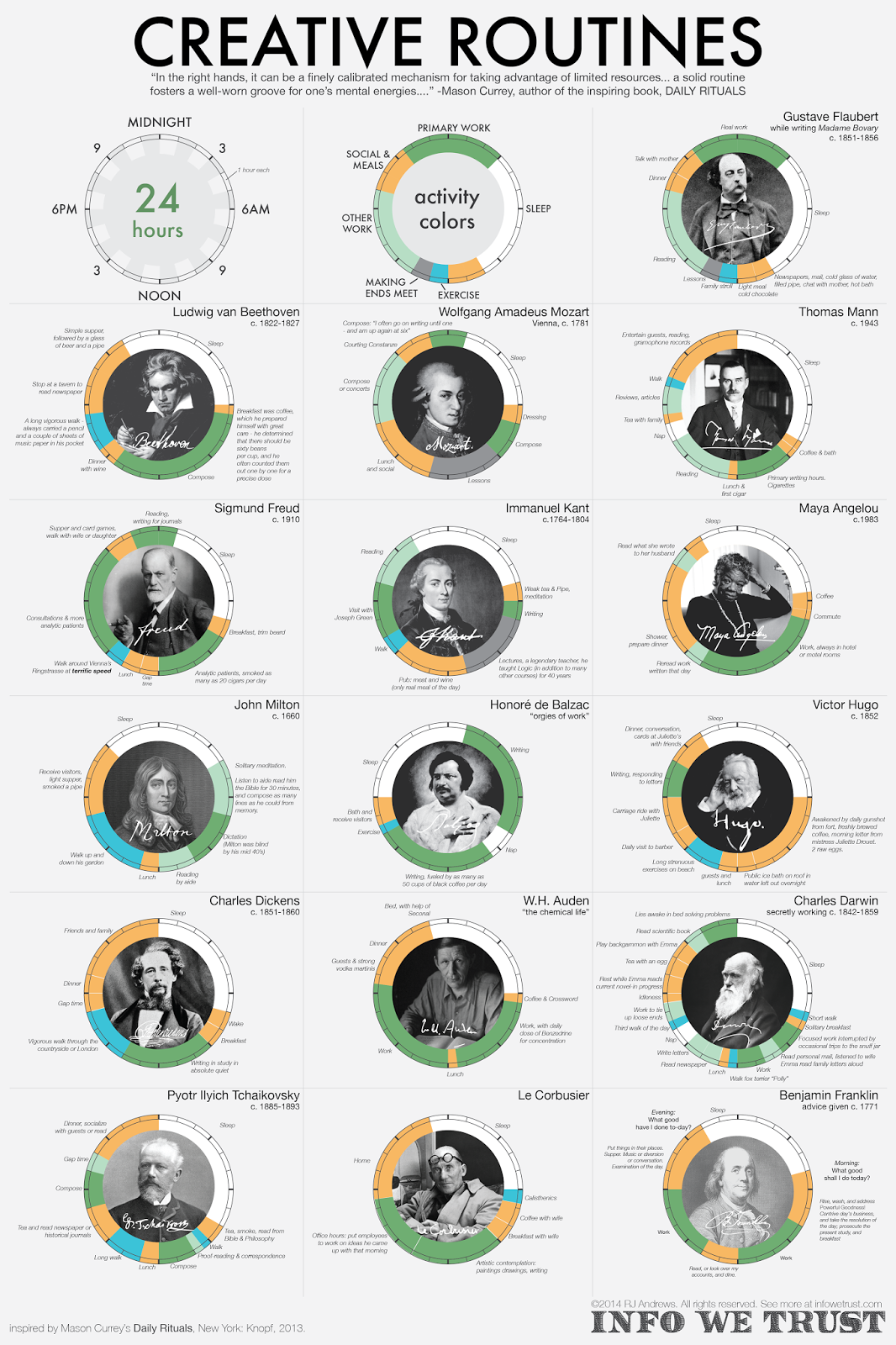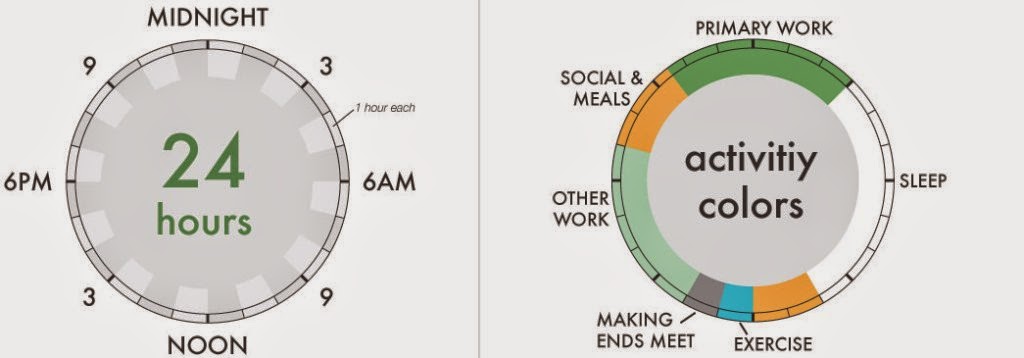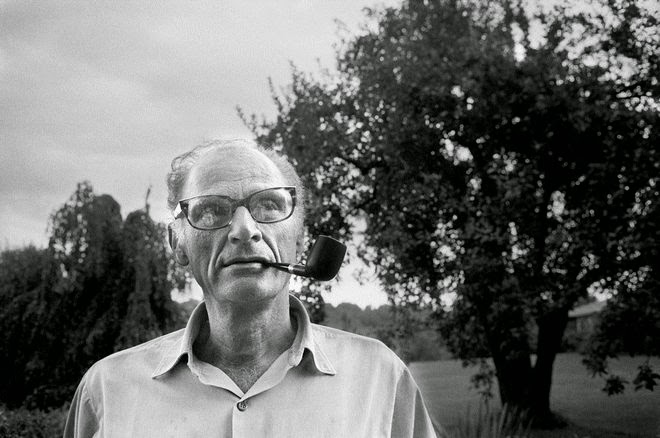
They are known for their work, but how was their personal life and their routine?
Mason Currey is a typical reporter. As most reporters - who don't cover everyday news - do, Currey finds it difficult to get his articles ready in time. "On July of 2007, I was sitting alone during a Sunday afternoon trying to compose an article for the journal I was working for. However, instead of doing what I had to do to finish the article, I was reading New York Times, cleaning my desk without a reason and wasting my time in general. It was a usual, but sad situation. I'm the typical "morning person" who can focus early in the morning, but becomes almost useless after lunch. This particular afternoon I decided to feel better by searching information about work schedules of other authors. It was easy to find them and they were really fun. I thought that someone should write about these stories..."
That's how Currey wrote the book "Daily Rituals" that hundreds of creatives practiced in order to carve out time, every day, to work their craft. Some kept to the same disciplined regimen for decades while others locked in patterns only while working on specific works.
There are enough data to visualize a portion of the hundreds of creative lifestyles. Click the poster to discover:
Gustave Flaubert, Ludwig Van Beethoven, W.A. Mozart, Thomas Mann, Sigmund Freud, Immanuel Kant, Maya Angelou, John Milton, Honore de Balzac, Victor Hugo, Charles Dickens, W.H. Auden, Charles Darwin, P.I. Tchaikovsky, Le Corbusier, Benjamin Franklin
Design Highlights
Representing each day as a continuous 24 hour cycle invokes the ever spinning wheel of time, and more simply the face of a clock with midnight placed in the “12 o’clock” position and noon at “6 o’clock.” Colors mark major categories of activity – work, sleep, exercise, etc.

"Daily Rituals" include around 150 everyday stories. Let's see 5 of the most brilliant minds ever lived and their everyday schedule.
Albert Einstein

Einstein emigrated to the US in 1933, where he worked as a professor in Princeton until his retirement in 1945. His everyday life was simple. He took breakfast around 9:00 and 10:00 while reading morning newspapers. At 10:30 he went to his office in Princeton. He went there walking when the weather was good or he took the University bus. He returned home for lunch around 1:00. He took a nap and then had a cup of tea. He spent the rest of his afternoon at home, working and arranging his correspondence. His dinner was at 6:30.
Despite his simple way of living, Einstein was a prominent figure in Princeton, known not only for his scientific achievements, but also for his abstraction and his careless look (he had long hair to avoid visiting the barber and he didn't wear socks because he found them useless).
While he was walking to his office, many people stopped him, because they wanted to meet the great scientist. As a fellow of his stated, Einstein posed with his fans and their families and chatted with them. Later he continued walking and murmured: "The old elephant did his job again".
Alexander Graham Bell

When he was young, Bell used to work all the time. He only slept for 3 or 4 hours every night. However, after his marriage and his wife's pregnancy, Bell was convinced to work less and relax more. His wife, Meibel, made him wake up for breakfast at 8:30 every morning and also made him relax after their dinner at 7:00.
When he got used to that, Bell understood that his new schedule was better for him and his family. However his passion for his job didn't let him follow this schedule everyday. Everytime he had a new idea, he begged his wife to let him work and to release him from his family obligations.
In such cases, he could work for even twenty two hours in a row, sleepless. Meibel finally accepted his undistracted concentration on his work, but not without some disapproval of hers. According to her diary, Meibel was proud for her husband's job, but she was jealous at the same time.
Ludwig van Beethoven


Beethoven got up really early to start working. His breakfast was a cup of coffee. He considered that each cup of coffee required sixty coffee beans. That's why he often counted them one by one!
Then, he started working until 2:00 or 3:00. He took a break to walk in the countryside.
At nights, he usually went to the theatre or stayed at home to read. His dinner was simple, such as a soup. He enjoyed drinking wine with his dinner and after that he wanted to drink a glass of beer and smoke his pipe. He didn't usually play the music at night - he went to sleep around 10:00.
Beethoven’s unusual bathing habits are worth noting here. According to his pupil and secretary Anton Schindler: “Washing and bathing were among the most pressing necessities of Beethoven’s life. In this respect he was indeed an Oriental: to his way of thinking Mohammed did not exaggerate a whit in the number of ablutions he prescribed. If he did not dress to go out during the morning working hours, he would stand in great de?shabille? at his washstand and pour large pitchers of water over his hands, bellowing up and down the scale or sometimes humming loudly to himself. Then he would stride around his room with rolling or staring eyes, jot something down, then resume his pouring of water and loud singing. These were moments of deep meditation, to which no one could have objected but for two unfortunate consequences. First of all, the servants would often burst out laughing. This made the master angry and he would sometimes assault them in language that made him cut an even more ridiculous figure. Or, secondly, he would come into conflict with the landlord, for all too often so much water was spilled that it went right through the floor. This was one of the main reasons for Beethoven’s unpopularity as a tenant. The floor of his living room would have had to be covered with asphalt to prevent all that water from seeping through. And the master was totally unaware of the excess of inspiration under his feet!”
Karl Marx

Marx arrived at London as a political refugee in 1849, thinking that he would only stay there for some months. However, he spent the rest of his life in this city.
According to Isaiah Berlin, Marx also had his daily habits, though not quite so well-balanced: "His mode of living consisted of daily visits to the British Museum reading-room, where he normally remained from nine in the morning until it closed at seven; this was followed by long hours of work at night, accompanied by ceaseless smoking, which from a luxury had become an indispensable anodyne; this affected his health permanently and he became liable to frequent attacks of a disease of the liver sometimes accompanied by boils and an inflammation of the eyes, which interfered with his work, exhausted and irritated him, and interrupted his never certain means of livelihood. “I am plagued like Job, though not so God-fearing,” he wrote in 1858."
Arthur Miller

"I wish I was normal in writing" Miller stated in an interview in 1999. "I wake up in the morning, go to my office and write. Then I rip what I wrote! That's my routine in reality.
Check out these brilliant minds' daily routines too:















Perhaps most fascinating, is reflecting on how you spend your days compared to these creative masters. Do you have a routine that helps you be productive every day?
Data are from Mason Currey’s book DAILY RITUALS. Order it from Amazon and learn more at Mason’s site. The original poster is below for link reference
Info We Trust is a data adventure exploring how to better humanize information. To learn more read the opening post here. The creator, RJ Andrews, is an engineer and proud Northeastern University and MIT graduate. Please reach out through facebook, twitter @infowetrust, or the contact page.
Related:
- Thousands Of Unreleased Documents Featuring Einstein’s Life Work Released Online For Free
- 25 Life Lessons from Albert Einstein
- Albert Einstein - How I See the World
- This Explains Why Einstein's Brain Was Special
- What Albert Einstein Taught Us About Love
- 30 Words Of Wisdom By The Great Scientist, Nikola Tesla
- The 10 Inventions of Nikola Tesla That Changed The World
- 10 Unbelievable Facts You Didn't Know About Nikola Tesla
- Nikola Tesla The Secret Movie - Unlimited Free Energy Forever
- Leonardo Da Vinci’s 6 Ingenious Inventions
- The 10 Most Famous Personalities Of The Last 6,000 Years
- Top 14 Greatest Philosophers And Their Books
- Socrates Was One Of The Smartest People Ever Lived. Here Are 24 Out Of His Most Important Quotes That Everyone Needs To Read
- Socrates: The Test Of Three
- MOTIVATION: 15 Best Socrates Picture Quotes
- 17 Of Plato's Most Famous Quotes That Can Help Us Improve Our Lives
- This Animation Will Explain To You Plato's Philosophy In Almost 3 Minutes
- 40 Aristotle's Quotes That Will Make You Think And Can Change Your Life
- The Key To Happiness, According To 3 Greek Philosophers
- 12 Life Lessons from Jesus That Everyone Should Read Before They Die
- 37 Confucius' Quotes That Will Help You Understand The Chinese Philosophy
- 39 Philosophical & Thought-Provoking Quotes By Albert Camus
- You Need To Read These 25 Truths By Galileo Galilei
- One Buddha Teaching That Will Tell You More About Yourself Than Anything Else
- 25 Life Changing Lessons to Learn from Buddha
- Gandhi’s 10 Fundamentals: How To Change The World
- 25 Life Changing Lessons To Learn From Rumi
- 10 Pieces Of Wisdom & Quotes From Native American Elders
- 10 Quotes From a Sioux Indian Chief That Will Make You Question Everything About Our Society
- 25 Lessons From Khalil Gibran That Can Totally Transform Your Life
- 18 Rules Of Living By The Dalai Lama
- Mark Twain’s Top 9 Tips For Living A Kick-Ass Life
- The Wisdom of Bruce Lee: 25 Quotes on Mastery, Martial Arts & Consciousness
- These Awesome Quotes Will Make You Rethink Life.
- 10 Sentences that Can Change Your Life
- It will take just 1 minute to read this and change your thinking.
- 99 Interesting Quotes That Will Change How You See The World
- “Where there is love there is life!” -Mahatma Gandhi
- John Lennon's "Imagine", made into a beautiful comic.
- 8 Great Philosophical Questions That We’ll Never Solve















So, to where is Einstein?
ReplyDeletein history
DeleteFascinating!
ReplyDeleteThanks for your article. I know many scientists only for their achievements, and few study their life in general. I have always been interested in the whole picture, so when I studied the personality of Charles Darwin, I studied his biography completely studydriver.com/charles-darwin-essay/, and not just what he achieved as a scientist. This is important for me, since all the little things are important in the formation of a person and his thoughts.
ReplyDelete